Linner Venus OTC Hearing Aids [FSA & HSA Eligible]
-
Estimated Delivery:Oct 14 - Oct 18
-
Free Shipping & 45 Days Trial
![Linner Venus OTC Hearing Aids [FSA & HSA Eligible] Linner](http://www.linnerlife.com/cdn/shop/files/Linner-Venus-OTC-Hearing-Aids-_FSA-_-HSA-Eligible_-Linner-109793611.jpg?v=1725360616&width=360)
Linner Venus OTC Hearing Aids [FSA & HSA Eligible]
Explore the compact size, long battery life and ergonomic design
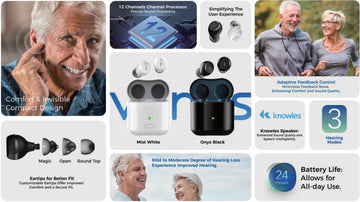
Explore the compact size, long battery life and ergonomic design
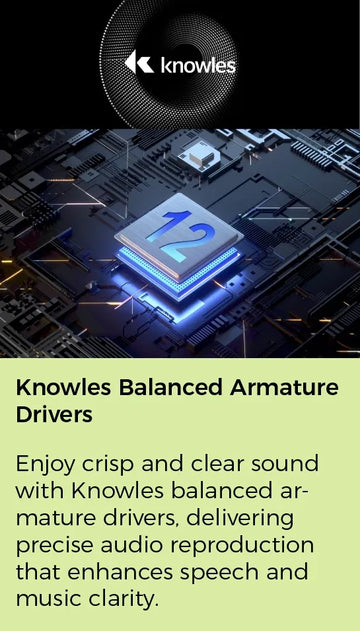
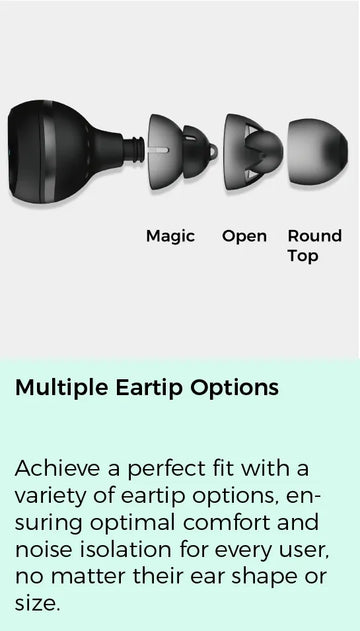
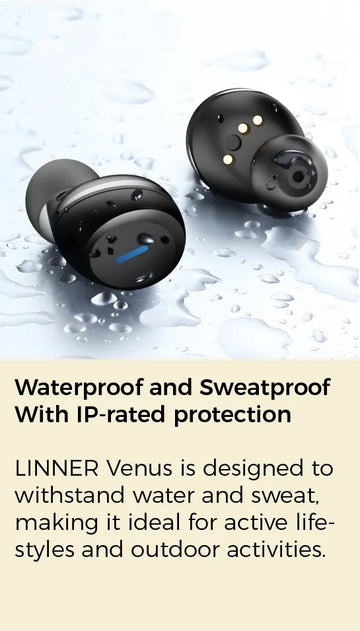
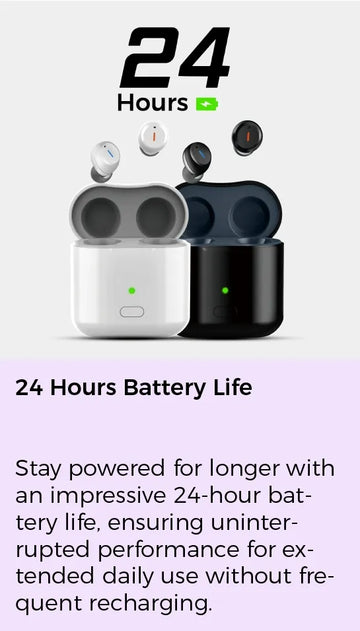

Invisible and Compact
Experience discreet wearability with Venus
—ultra-small, invisible design for ultimate comfort.

HSA/FSA Eligible
Save more with you pre-tax funds

LINNER Audiologists
Benefits customers with
- Blogs
- Case studies
- Product Reveiws
- Hearing Academy
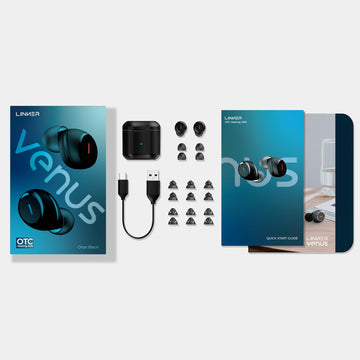
What is in the box
1 x Venus Hearing Aids (Pair)
1 x Rechargeable Charging case
3 x Comfort domes (Size s/m/l)
3 x Boom domes (Size s/m/l)
1 x USB-C charging cable
1 x User Manual
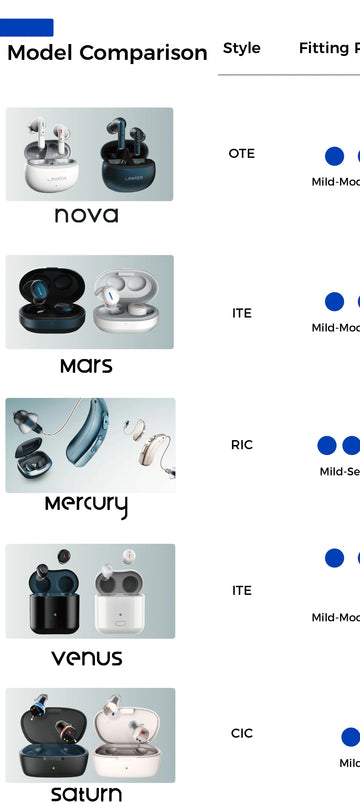
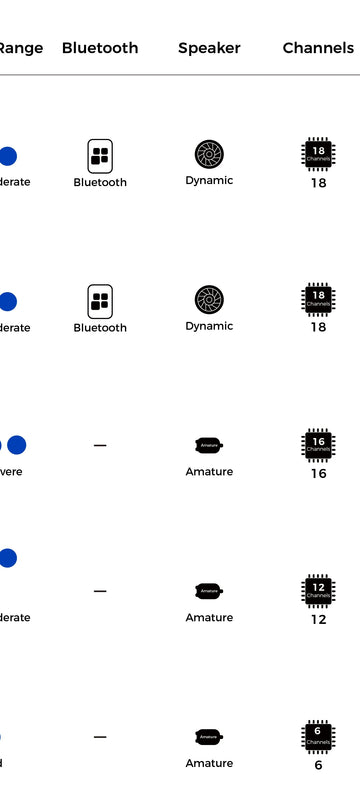
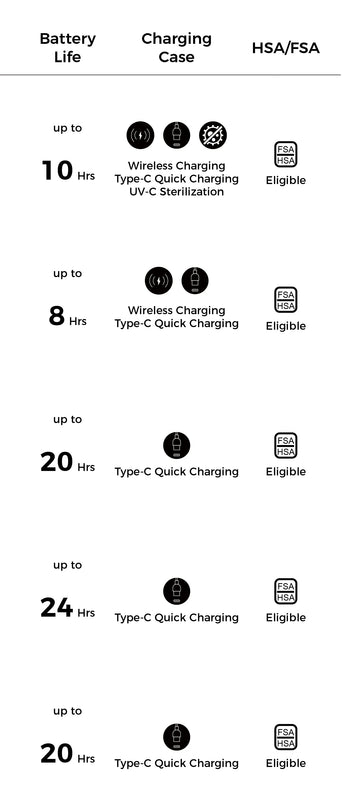
What can we help you with?
Use this text to share information about your brand with your customers.
What features should hearing aids for seniors have?
The best hearing aids for seniors should prioritize simplicity, comfort, and clarity. Essential features include easy-to-use volume controls, large buttons, and automatic sound adjustment to adapt to changing environments. Many hearing aids for seniors also offer speech enhancement, background noise reduction, and feedback cancellation, which improve daily conversation and overall hearing experience.
Additionally, hearing aids for seniors benefit from features like rechargeable batteries, Bluetooth connectivity for phone calls and TV streaming, and compatibility with smartphone apps. These features reduce the need for frequent maintenance and provide more independence. Choosing hearing aids for seniors with a user-friendly design and helpful support options ensures a smooth experience.
Are hearing aids for seniors easy to use and adjust?
Yes, most hearing aids for seniors are specifically designed to be user-friendly. They typically include simple one-touch controls or automatic settings that adjust volume and sound profiles without manual tweaking. Many hearing aids for seniors come with large, tactile buttons or smartphone apps that allow users or caregivers to make easy adjustments as needed.
Furthermore, some hearing aids for seniors feature voice prompts or alerts for battery status and connection, making them even more intuitive. With proper setup and guidance, seniors can feel confident using hearing aids for seniors on their own. The key is selecting a model that balances technology with ease of use and comfort.
How comfortable are discreet hearing aids for daily wear?
Discreet hearing aids are specifically designed to be small, lightweight, and nearly invisible when worn. Their ergonomic shape and soft materials ensure they sit comfortably inside or behind the ear without causing pressure. Most discreet hearing aids include multiple tip sizes or custom molds to fit different ear shapes, enhancing both comfort and retention.
Even with prolonged use, discreet hearing aids remain unobtrusive, making them ideal for users who value both comfort and appearance. Thanks to advanced design, discreet hearing aids provide all-day wearability without ear fatigue, even for users with smaller ears or those wearing glasses or masks.
What are the pros and cons of discreet hearing aids?
Discreet hearing aids offer a major benefit in aesthetics—they're barely visible, making users feel more confident in social settings. Many models still include high-end features like noise reduction, Bluetooth, and automatic sound adjustment. Because discreet hearing aids are lightweight and compact, they’re also very comfortable for extended wear.
However, discreet hearing aids may have limitations like shorter battery life and less power compared to larger models. Their small size can also make them harder to handle for users with dexterity issues. Overall, discreet hearing aids are a great choice for those who prioritize invisibility and simplicity, with some trade-offs in accessibility and volume power.
Are ITE hearing aids rechargeable or battery-powered?
ITE hearing aids are available in both rechargeable and battery-powered options. Traditional models often use small zinc-air disposable batteries, which require replacement every few days or weeks depending on usage. However, modern ITE hearing aids now frequently include built-in rechargeable batteries, offering added convenience for users who prefer fewer maintenance tasks.
Rechargeable ITE hearing aids typically charge overnight and provide all-day usage on a single charge. This is especially beneficial for seniors or individuals with limited dexterity. When choosing between rechargeable and battery-powered ITE hearing aids, users should consider lifestyle needs, daily wear time, and personal preference for ease of use.
How do ITE hearing aids handle wind and background noise?
Advanced ITE hearing aids include features like directional microphones, noise reduction algorithms, and feedback suppression to help reduce unwanted sound. Their position within the ear canal gives ITE hearing aids a natural wind protection advantage compared to BTE models, as they are partially shielded by the ear’s outer structure.
However, noise management performance may vary by brand and technology level. Premium ITE hearing aids use digital processing to isolate speech and minimize background noise in busy environments. With proper fitting and feature optimization, ITE hearing aids can offer clear, focused sound even in outdoor or crowded settings.
What types of FSA hearing aids can I buy?
Most FDA-approved hearing devices, including OTC and prescription models, are eligible as FSA hearing aids. You can use your Flexible Spending Account to purchase in-the-ear (ITE), behind-the-ear (BTE), and receiver-in-canal (RIC) FSA hearing aids, as long as they are intended for medical hearing loss treatment. Both rechargeable and disposable battery models typically qualify.
In addition to the devices themselves, many accessories like batteries, cleaning kits, and fitting services are also covered as part of FSA hearing aids expenses. It’s important to keep receipts and verify eligibility with your provider. Choosing qualified FSA hearing aids allows you to make the most of pre-tax healthcare funds before the annual deadline.
Are the smallest hearing aids powerful enough for daily use?
Yes, the smallest hearing aids can be surprisingly powerful despite their compact size. Many models use advanced microprocessors that deliver high-quality sound amplification suitable for mild to moderate hearing loss. The smallest hearing aids include features like noise suppression, feedback management, and even app-based customization.
However, due to limited space, the smallest hearing aids may have shorter battery life or fewer connectivity options. They might not be ideal for severe hearing loss or users who need constant Bluetooth streaming. Still, for discreet daily use with solid performance, the smallest hearing aids provide an excellent balance of form and function.
How do I clean and maintain small hearing aids?
Cleaning small hearing aids requires careful handling to avoid damaging their sensitive components. Start by wiping the outer surface with a dry, soft cloth daily. Use a brush or wax loop to gently remove debris from the microphone ports and sound outlet. For small hearing aids with removable tips or domes, soak them in warm soapy water weekly and let them dry fully.
To keep small hearing aids functioning well, store them in a dry box or case overnight to prevent moisture buildup. Avoid exposure to water, hairspray, or excessive heat. Regular maintenance not only extends the life of small hearing aids but also ensures optimal sound clarity and comfort.
What are the comfort considerations with hearing aids for small ear canals?
When choosing hearing aids for small ear canals, comfort and fit are top priorities. A proper seal is essential for sound quality but must be balanced with wearing ease. Custom-molded or miniature models like CIC or IIC are often recommended as hearing aids for small ear canals since they sit deeper and conform better to narrow ear structures.
Soft silicone tips and slim design also make hearing aids for small ear canals more comfortable for long-term use. These models reduce pressure, slippage, and irritation. For the best experience, work with an audiologist to ensure that hearing aids for small ear canals are precisely fitted and adjusted to your anatomy.


![Linner Venus OTC Hearing Aids [FSA & HSA Eligible] Linner](http://www.linnerlife.com/cdn/shop/files/Linner-Venus-OTC-Hearing-Aids-_FSA-_-HSA-Eligible_-Linner-109793611.jpg?v=1725360616&width=1946)
![Linner Venus OTC Hearing Aids [FSA & HSA Eligible] Linner](http://www.linnerlife.com/cdn/shop/files/Linner-Venus-OTC-Hearing-Aids-_FSA-_-HSA-Eligible_-Linner-109793736.jpg?v=1725360614&width=1946)
![Linner Venus OTC Hearing Aids [FSA & HSA Eligible] Linner](http://www.linnerlife.com/cdn/shop/files/Linner-Venus-OTC-Hearing-Aids-_FSA-_-HSA-Eligible_-Linner-110735334.webp?v=1727675991&width=1946)
![Linner Venus OTC Hearing Aids [FSA & HSA Eligible] Linner](http://www.linnerlife.com/cdn/shop/files/Linner-Venus-OTC-Hearing-Aids-_FSA-_-HSA-Eligible_-Linner-110735463.webp?v=1727675994&width=1946)
![Linner Venus OTC Hearing Aids [FSA & HSA Eligible] Linner](http://www.linnerlife.com/cdn/shop/files/Linner-Venus-OTC-Hearing-Aids-_FSA-_-HSA-Eligible_-Linner-110735553.webp?v=1727675996&width=1946)
![Linner Venus OTC Hearing Aids [FSA & HSA Eligible] Linner](http://www.linnerlife.com/cdn/shop/files/Linner-Venus-OTC-Hearing-Aids-_FSA-_-HSA-Eligible_-Linner-110735664.webp?v=1727676000&width=1946)
![Linner Venus OTC Hearing Aids [FSA & HSA Eligible] Linner](http://www.linnerlife.com/cdn/shop/files/Linner-Venus-OTC-Hearing-Aids-_FSA-_-HSA-Eligible_-Linner-110735745.webp?v=1727676003&width=1946)
![Linner Venus OTC Hearing Aids [FSA & HSA Eligible] Linner](http://www.linnerlife.com/cdn/shop/files/Linner-Venus-OTC-Hearing-Aids-_FSA-_-HSA-Eligible_-Linner-110735872.webp?v=1727676006&width=1946)
![Linner Venus OTC Hearing Aids [FSA & HSA Eligible] Linner](http://www.linnerlife.com/cdn/shop/files/Linner-Venus-OTC-Hearing-Aids-_FSA-_-HSA-Eligible_-Linner-110735957.webp?v=1727676009&width=1946)
![Linner Venus OTC Hearing Aids [FSA & HSA Eligible] Linner](http://www.linnerlife.com/cdn/shop/files/Linner-Venus-OTC-Hearing-Aids-_FSA-_-HSA-Eligible_-Linner-110736050.webp?v=1727676012&width=1946)
![Linner Venus OTC Hearing Aids [FSA & HSA Eligible] Linner](http://www.linnerlife.com/cdn/shop/files/Linner-Venus-OTC-Hearing-Aids-_FSA-_-HSA-Eligible_-Linner-110736182.webp?v=1727676015&width=1946)
![Linner Venus OTC Hearing Aids [FSA & HSA Eligible] Linner](http://www.linnerlife.com/cdn/shop/files/Linner-Venus-OTC-Hearing-Aids-_FSA-_-HSA-Eligible_-Linner-110736224.webp?v=1727676018&width=1946)
![Linner Venus OTC Hearing Aids [FSA & HSA Eligible] Linner](http://www.linnerlife.com/cdn/shop/files/Linner-Venus-OTC-Hearing-Aids-_FSA-_-HSA-Eligible_-Linner-110736399.webp?v=1727676021&width=1946)
![Linner Venus OTC Hearing Aids [FSA & HSA Eligible] Linner](http://www.linnerlife.com/cdn/shop/files/Linner-Venus-OTC-Hearing-Aids-_FSA-_-HSA-Eligible_-Linner-110736457.webp?v=1727676024&width=1946)
![Linner Venus OTC Hearing Aids [FSA & HSA Eligible] Linner](http://www.linnerlife.com/cdn/shop/files/Linner-Venus-OTC-Hearing-Aids-_FSA-_-HSA-Eligible_-Linner-110736575.webp?v=1727676027&width=1946)
![Linner Venus OTC Hearing Aids [FSA & HSA Eligible] Linner](http://www.linnerlife.com/cdn/shop/files/Linner-Venus-OTC-Hearing-Aids-_FSA-_-HSA-Eligible_-Linner-110736691.webp?v=1727676030&width=1946)
![Linner Venus OTC Hearing Aids [FSA & HSA Eligible] Linner](http://www.linnerlife.com/cdn/shop/files/Linner-Venus-OTC-Hearing-Aids-_FSA-_-HSA-Eligible_-Linner-110736777.webp?v=1727676034&width=1946)
![Linner Venus OTC Hearing Aids [FSA & HSA Eligible] Linner](http://www.linnerlife.com/cdn/shop/files/Linner-Venus-OTC-Hearing-Aids-_FSA-_-HSA-Eligible_-Linner-110736894.webp?v=1727676036&width=1946)
![Linner Venus OTC Hearing Aids [FSA & HSA Eligible] Linner](http://www.linnerlife.com/cdn/shop/files/Linner-Venus-OTC-Hearing-Aids-_FSA-_-HSA-Eligible_-Linner-109793611.jpg?v=1725360616&width=120)
![Linner Venus OTC Hearing Aids [FSA & HSA Eligible] Linner](http://www.linnerlife.com/cdn/shop/files/Linner-Venus-OTC-Hearing-Aids-_FSA-_-HSA-Eligible_-Linner-109793736.jpg?v=1725360614&width=120)
![Linner Venus OTC Hearing Aids [FSA & HSA Eligible] Linner](http://www.linnerlife.com/cdn/shop/files/Linner-Venus-OTC-Hearing-Aids-_FSA-_-HSA-Eligible_-Linner-110735334.webp?v=1727675991&width=120)
![Linner Venus OTC Hearing Aids [FSA & HSA Eligible] Linner](http://www.linnerlife.com/cdn/shop/files/Linner-Venus-OTC-Hearing-Aids-_FSA-_-HSA-Eligible_-Linner-110735463.webp?v=1727675994&width=120)
![Linner Venus OTC Hearing Aids [FSA & HSA Eligible] Linner](http://www.linnerlife.com/cdn/shop/files/Linner-Venus-OTC-Hearing-Aids-_FSA-_-HSA-Eligible_-Linner-110735553.webp?v=1727675996&width=120)
![Linner Venus OTC Hearing Aids [FSA & HSA Eligible] Linner](http://www.linnerlife.com/cdn/shop/files/Linner-Venus-OTC-Hearing-Aids-_FSA-_-HSA-Eligible_-Linner-110735664.webp?v=1727676000&width=120)
![Linner Venus OTC Hearing Aids [FSA & HSA Eligible] Linner](http://www.linnerlife.com/cdn/shop/files/Linner-Venus-OTC-Hearing-Aids-_FSA-_-HSA-Eligible_-Linner-110735745.webp?v=1727676003&width=120)
![Linner Venus OTC Hearing Aids [FSA & HSA Eligible] Linner](http://www.linnerlife.com/cdn/shop/files/Linner-Venus-OTC-Hearing-Aids-_FSA-_-HSA-Eligible_-Linner-110735872.webp?v=1727676006&width=120)
![Linner Venus OTC Hearing Aids [FSA & HSA Eligible] Linner](http://www.linnerlife.com/cdn/shop/files/Linner-Venus-OTC-Hearing-Aids-_FSA-_-HSA-Eligible_-Linner-110735957.webp?v=1727676009&width=120)
![Linner Venus OTC Hearing Aids [FSA & HSA Eligible] Linner](http://www.linnerlife.com/cdn/shop/files/Linner-Venus-OTC-Hearing-Aids-_FSA-_-HSA-Eligible_-Linner-110736050.webp?v=1727676012&width=120)
![Linner Venus OTC Hearing Aids [FSA & HSA Eligible] Linner](http://www.linnerlife.com/cdn/shop/files/Linner-Venus-OTC-Hearing-Aids-_FSA-_-HSA-Eligible_-Linner-110736182.webp?v=1727676015&width=120)
![Linner Venus OTC Hearing Aids [FSA & HSA Eligible] Linner](http://www.linnerlife.com/cdn/shop/files/Linner-Venus-OTC-Hearing-Aids-_FSA-_-HSA-Eligible_-Linner-110736224.webp?v=1727676018&width=120)
![Linner Venus OTC Hearing Aids [FSA & HSA Eligible] Linner](http://www.linnerlife.com/cdn/shop/files/Linner-Venus-OTC-Hearing-Aids-_FSA-_-HSA-Eligible_-Linner-110736399.webp?v=1727676021&width=120)
![Linner Venus OTC Hearing Aids [FSA & HSA Eligible] Linner](http://www.linnerlife.com/cdn/shop/files/Linner-Venus-OTC-Hearing-Aids-_FSA-_-HSA-Eligible_-Linner-110736457.webp?v=1727676024&width=120)
![Linner Venus OTC Hearing Aids [FSA & HSA Eligible] Linner](http://www.linnerlife.com/cdn/shop/files/Linner-Venus-OTC-Hearing-Aids-_FSA-_-HSA-Eligible_-Linner-110736575.webp?v=1727676027&width=120)
![Linner Venus OTC Hearing Aids [FSA & HSA Eligible] Linner](http://www.linnerlife.com/cdn/shop/files/Linner-Venus-OTC-Hearing-Aids-_FSA-_-HSA-Eligible_-Linner-110736691.webp?v=1727676030&width=120)
![Linner Venus OTC Hearing Aids [FSA & HSA Eligible] Linner](http://www.linnerlife.com/cdn/shop/files/Linner-Venus-OTC-Hearing-Aids-_FSA-_-HSA-Eligible_-Linner-110736777.webp?v=1727676034&width=120)
![Linner Venus OTC Hearing Aids [FSA & HSA Eligible] Linner](http://www.linnerlife.com/cdn/shop/files/Linner-Venus-OTC-Hearing-Aids-_FSA-_-HSA-Eligible_-Linner-110736894.webp?v=1727676036&width=120)


